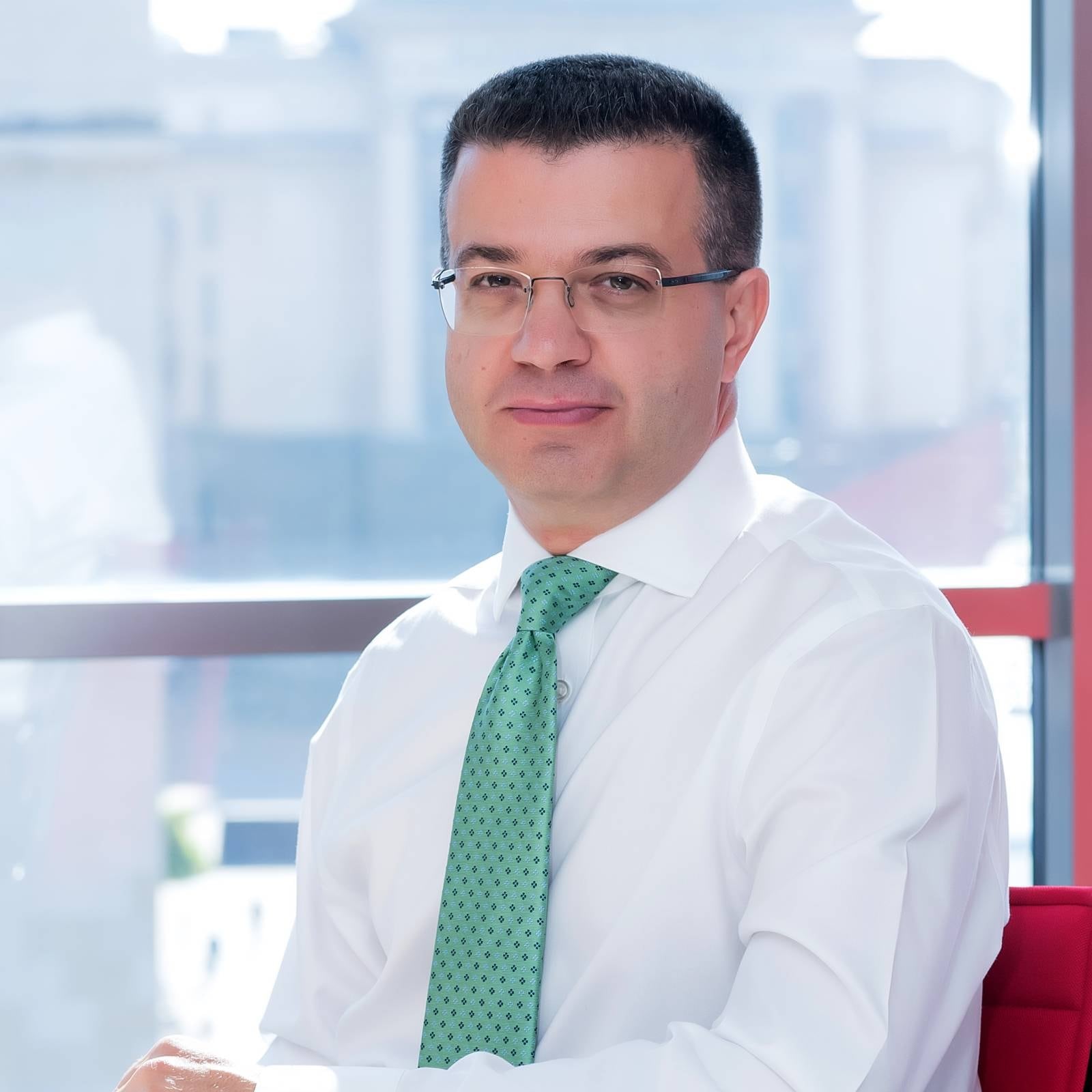The mid-2020s are particularly significant for the Central and Eastern European region. May 2024 heralds the 20th anniversary of the accession of Czechia, Estonia, Hungary, Latvia, Lithuania, Poland, Slovakia and Slovenia to the European Union, joined three years later by Bulgaria and Romania. This growing maturity is reflected in the current challenges faced by family businesses, which are of crucial importance to the regional economy, with up to half of private sector employees being employed by family-owned and run companies.
The majority of CEE family businesses are still run by the first generation of post-communist era entrepreneurs who formed them. According to the 2023 CEE Family Business Survey, 64% of CEE family businesses (double the 32% global figure) are in the hands of the first generation and 36% have passed to second or further generations (vs. 68% globally). However, with many of the first wave now in their 60s or 70s, this decade is seeing the approach of a changing of the guard in leadership in family businesses. NextGen, or the next generation of family business leaders who are typically aged between young adulthood and their early 40s, are getting closer to attaining senior executive roles.
The global PwC Global NextGen Survey is particularly pertinent to CEE, illustrated by over 20% of respondents to the global survey being based in the region—and the high percentage of family businesses still run by their founders. There are clear signs that these pioneering businesses are at a crossroads—and are looking inward and outward to plan a strategy to remain viable and prosper in the coming decades.
“The importance of family businesses to CEE economies cannot be overstated. In Czechia, for instance, it is estimated that they make up as much as 70-80% of companies. Succession planning is key to future-proofing all businesses but has particular significance for family businesses in our region. Many of NextGen are already in managerial positions—preparing to take over as CEOs. The CEE edition of the report explores the key challenges and priorities on the horizon of these CEOs-in-waiting. Last year’s Family Business Survey in CEE showed us that these companies in our region are increasingly seeing the imperative to transform. Our recent CEO survey expanded on this theme, revealing that almost half of CEOs in our region believe their companies face an existential threat without transformation. Family businesses can be described as the engines of CEE economies, so the stakes are high. They must embrace transformation under NextGen not just to survive but to thrive and grow.”

Key findings
Achieving growth is the key priority
Achieving business growth is comfortably the key priority for CEE NextGen over the next two years, with well over half of respondents citing growth as most important. Given that the second biggest priority is expanding into new sectors, this chimes with the results of last year’s Family Business Survey, where 91% of CEE respondents reported that growth is important because it enables investment in their company’s future. This suggests that both current and NextGen leaders are doing all they can to adapt to uncertain times in order to pursue growth.
Questions: From your own personal point of view, what would be your top three priorities for the company over the next two years?
In which areas, if any, are you personally actively engaged at present or likely to be engaged in the future?

“Over the next two years, family businesses should focus on four main developments. The first is innovation and digital transformation, which will help them stay relevant and competitive in an increasingly digital world. New revenue streams are another area to be accelerated, particularly by exploring new markets, products or services and new partnerships and alliances. Adapting to changing customer preferences should also get attention and include the implementation of environmental, social and government practices, together with the development of digital channels. Finally, to drive success and future innovation, family firms need to focus on talent development because engaged and motivated employees are making changes. However, emphasising these four areas, family businesses should also remember succession planning as a crucial element of their long-term sustainability."

Despite the current generation of family business leaders citing changing market conditions, innovation and development as fundamentally important, family businesses have a reputation for having somewhat traditional and conservative mindsets. Both globally and in the CEE region, NextGen reveals a willingness to explore new ideas and business practices, with the principal areas where they believe they can add the most value being professionalisation and modernisation of management practices and international expansion.
This more than hints that NextGen has one eye on leading business transformation for once they assume the roles of key decision-makers. It’s especially relevant considering diversifying the services and products that the business offers and separating family ownership from management are the next most important ways NextGen can bring to the top table in their family businesses.
“In our business, we’re always looking for ways to grow and expand. We believe in leveraging technology and diversifying our product portfolio. We’re also exploring untapped markets and considering partnerships to broaden our reach.”

Question: Where do you think that you can personally add the most value to your family business?

NextGen in CEE is notably less positive than current leadership on issues related to clarity of roles and responsibilities, governance structure and digital structure. There is a clear generation gap in terms of role clarity and governance, with NextGen both globally and in CEE over 10% more pessimistic. Furthermore, more than one-third (36%) of CEE and global NextGen believe there is institutional resistance in their family business to embracing change. Additionally, less than one-quarter (23% versus 34% globally) see appropriate protocols or a constitution in place. The survey suggests, therefore, that NextGen clearly feels there is work to be done in transforming the governance and the strategic direction of CEE family businesses.
Question: How strongly do you agree that…?

A gap between NextGen personal interest and company action on generative AI
“Family businesses in CEE interested in leveraging AI for growth should start by identifying specific areas within their operations where AI can add the most value, such as data analytics for strategic decision-making and AI-powered process enhancements. I believe it is also absolutely crucial to invest in the digital upskill of their employees to effectively implement and manage AI technologies. Finally, collaborating with consultants who have a track record of delivering AI-enabled solutions specifically addressing their use cases can provide great insights for a successful integration of AI into their business strategies.”

High interest and knowledge surround AI but limited action so far
The recent CEE edition of the Global CEO Survey alluded to CEOs in the region being somewhat more neutral than their global counterparts on generative AI, with 10% less believing the technology will significantly change the way their company creates, delivers and captures value over the next three years. Nonetheless, CEOs in CEE still see a clear direction of travel in terms of AI, with well over half (59%) predicting that generative AI will be vital to transformation.
The NextGen Survey identifies comparable patterns. Most NextGen in CEE (75% vs 82% globally) are personally interested in generative AI—and a majority perceive their knowledge levels to be high. 58% of NextGen in CEE consider themselves knowledgeable about generative AI, which is higher than the 53% global figure.
In the CEE region, however, this apparent interest and knowledge has not translated into CEE family businesses reaping operational and financial benefits from generative AI adoption. Although over one-third (34%—marginally more than globally) are in the early stages of exploration, almost 40% of family businesses in CEE have yet to begin their generative AI journey. Only 7% have implemented AI in some or many parts of their organisations.
“Digitisation and automation of processes is an inevitable part of business. We are actively investing in this direction to be more efficient, to create more convenience for customers, and to make the work of our teams even more precise. No matter how fast generative AI develops, it will not replace humans, their intelligence, and their creativity. I believe in people and the immense potential of each succeeding generation.”

These results point to two things. Firstly, there may be more evidence of a generation gap between current leaders and NextGen. NextGen clearly recognise the transformational potential of generative AI—but also report that their family businesses have been slow off the mark in terms of adoption. Secondly, connected to the above—it is clear that the pace of generative AI technological advancement is relentless, but the reaction of many family businesses hasn’t gotten even close to matching this speed.
Despite a realisation that there is a need to harness AI technology, CEE family businesses have moved towards generative AI adoption at a fairly pedestrian pace in many cases. They have to pick up speed in order to benefit from the technology—and quickly.
Question: How would you describe your family business’s current level of adoption of generative AI?

Forecasting growth in the deployment of AI in the medium, rather than short term
Given the slow pace of AI implementation in CEE family businesses, it is perhaps unsurprising that just over one in ten (13%) of NextGen report their organisation has a person or team directly responsible for generative AI. Also, responses show a clear difference in how much NextGen in CEE are engaged in generative AI now—and how much they expect to be later. Only 12% of NextGen in CEE are currently engaged in generative AI—but a further 56% expect to be engaged in the future.
Question: To what extent do you agree with the following statements about generative AI?

There is an important question that these results pose—especially when considering that over one-third of CEE NextGen believe generative AI will require the majority of their workforce to learn new skills. Will there be a significant reconfiguration of strategic priorities towards generative AI once NextGen assumes executive roles in family businesses?
The 44% difference between NextGen who are currently engaged in AI and those who believe they will be in the future certainly points to an acceleration towards AI once NextGen takes the reins. Additionally, only 13% of NextGen in CEE believe that generative AI will increase the company’s profitability in the next 12 months—which is almost half of the 21% reported globally.
This gives the impression that the handover from the first wave of CEE entrepreneurs to a more tech-savvy NextGen is seen by the latter as a catalyst for more transformation and profitability in the medium to long term through AI adoption.
“The transition from interest to implementation of generative AI in family businesses involves strategic planning, education, and integration efforts. Education is crucial. Family businesses should start by educating their leaders and workforce about what generative AI is, its potential, and how it can benefit their specific business. The next step is to incorporate AI strategies into the business plan. This involves identifying areas where AI can have the most significant impact, such as operational efficiency, customer service, product development, or market analysis. Before a full-scale rollout, start with small, manageable pilot projects. This allows the business to test the waters with minimal risk, learn from the experience, and adjust strategies. Success stories from these pilots can build momentum and support for broader AI initiatives. For many family businesses, developing AI in-house may not be feasible due to resource constraints. Partnering with the right advisor, emerging tech-enabled services can provide access to expertise, technology, and talent. Collaborations can also offer opportunities for co-innovation”

Leveraging the technology’s benefits—but managing the risks it presents
"The CEE results of the NextGen Survey show us that transformation is very high on the agenda of future leaders of family businesses. NextGen is also well aware that ever-changing market conditions require constant adjustments and new ways of driving value. Future family business leaders are also generally positive about AI although implementation of generative AI has been very slow in their organisations. All of this points to challenges ahead in implementing generative AI solutions. As the cloud has the potential to feed more data into AI systems and ensure better performance of algorithms, it is fundamentally important that cloud transformation is the basis for meeting these challenges. Put simply, cloud adoption paves the way for the successful implementation of AI technology in family-run companies, and indeed all businesses, in our region and beyond."

A clear majority of NextGen in CEE are generally positive about what generative AI can potentially bring to their family businesses. There are also clear signals that there is some trepidation, primarily about the risks surrounding AI—in particular cybersecurity—and also concerning the sheer pace of the technology’s evolution. Approaching half (44%) of NextGen see phishing attacks, data breaches and other cyber risks as likely to increase due to generative AI. Significant numbers of between one-quarter and one-fifth see risks in the spread of misinformation, bias towards specific groups of customers or employees, and legal liabilities and reputational risks.
Question: To what extent do you agree that generative AI is likely to increase the following in your company in the next 12 months?

“The implementation of AI in our region has been slower than expected. Now that the costs of implementing AI into processes are getting cheaper, this could be due to factors like lack of skilled personnel and regulatory challenges. We’re working on addressing these issues to fully harness the potential of AI.”

Despite being aware of the inherent risks in AI adoption, there is overall positivity about the technology’s potential among NextGen. This is optimised by a clear majority of 68% seeing AI as a powerful force for business transformation. The perceived key benefits of AI by NextGen in CEE are increased operational efficiencies, cost savings and improved decision making. AI is also seen as being capable of helping CEE businesses adopt new technologies, upskill the digital capabilities of the workforce and achieve growth.
Question: To what extent do you agree with the following statements about AI generally? And to what extent do you agree or disagree with the following statements about AI and your family business?

This optimism is tempered, however, by two-thirds (66%) of NextGen reporting they believe that AI seems to evolve so quickly that it's hard to keep up, and that well over half (58%) feel that AI will bring more pressure from competitors.
The survey statistic that perhaps speaks loudest about the extent of work to be done by CEE family businesses is that only 3% of NextGen report their family business has already defined governance around using AI responsibly, although a further 58% believe they need to do this. CEE family businesses need to quickly get moving in the AI direction that NextGen clearly indicates as the one they must travel on.
Current leaders and NextGen have work to do in building and maintaining trust
NextGen in CEE generally feel less positive than the current generation about family trust levels. While over half of the current generation believe that there is a high level of trust between them and NextGen, 5% less of NextGen feel the same way. Trust levels are not just an issue for family members within family businesses. Only 25% of NextGen believe there are high levels of trust between family members and non-family members within their businesses. This apparent lack of trust among different groups within the business is not the best basis in some companies for succession planning, which is discussed in the section below.
“The survey findings on one hand indicate there is a real existing trust issue in family business—and on the other hand NextGen are genuinely unhappy about it. The younger successors tend to be more dynamic and better at responding quickly to pressing new challenges. I would expect that as they get more and more involved and in control of the family operations, the issue of trust will be higher on the agenda and we shall witness many new and unexpected solutions. This may happen through internally developed and improved practices—and also through family businesses bringing new services or products to market. More and more often, we shall see family businesses run by NextGen identify and connect with startups or ready scale-up companies which have developed interesting smart solutions.”

Question: How much trust would say there is between…?

*Based on CEE editions of the 2023 Family Business Survey and the 2024 NextGen Survey.
These issues around trust also have consequences for the business as a whole—as family businesses in the CEE region to a large extent build their reputation upon trust. There is an acceptance that consumers may have trust issues. Although approaching half of NextGen in CEE (44%) believe their consumers have medium levels of trust in businesses to responsibly use emerging technologies, only 8% of NextGen believe consumers have high levels of trust in this context.
As explained in the 2024 Edelman Trust Barometer Global Report, while family businesses remain the most trusted type of business, implementation of innovation is just as important as invention. Mismanaged innovations are more likely to create a backlash than build consumer trust.
With the apparently slow pace of AI experimentation and even slower implementation generally in CEE family businesses, NextGen (and the current generation of leadership) has a major challenge on their hands. This challenge isn’t only around increasing their companies' understanding of the business benefits and risks of AI—but implementing it in a way that retains and increases the confidence of consumers.
"In order to earn consumers’ trust over time, businesses need to focus on open communication and transparency when starting to implement emerging technologies. They need to provide detailed information about data collection and processing, as well as about all data protection measures undertaken. Education and awareness will foster the process and ensure consumers are aware of the benefits of emerging technologies and how the business is using them to provide a higher quality product or service. Finally, CEE family businesses have built a strong reputation and trust throughout time that can be positively leveraged in the implementation process."

More effective succession planning is needed to bridge the generation gap
While emotional, social and personal issues play important roles in all businesses, intergenerational and interfamilial ties greatly heighten these dynamics in family companies. Given the advancing years of the first generation of family business entrepreneurs, it follows that handing over to the next generation of leaders is at the forefront of their thoughts. Last year’s CEE Family Business Survey showed that succession planning is a growing challenge for many family-owned businesses in the region.
“PwC can help to smooth up the transfer of the business to the next generation. This includes helping to establish a legal structure that supports the family business's unique needs and the unwritten rules that govern family interactions within the business context. We can also assist in defining managerial roles for family members, complementing these with external experts where necessary to bring in fresh perspectives and specialised knowledge. PwC ensures that the succession process is transparent and feasible, and that it is perceived as fair by all stakeholders, particularly the inheriting generation.”

In the CEE Family Business Survey, almost three-quarters of leaders (74%) reported that ensuring their business stays in the family is a key personal long-term goal. However, the survey also suggested that many first-generation leaders had not taken appropriate steps to achieve this goal. Only 69% of them have some form of governance policy in place within the business compared to 81% globally—and 10% fewer than global averages had a document including a last will and testament (25% in CEE, 35% globally).
This concern over succession planning is shared by NextGen. Just over half (51%) of NextGen in CEE are aware of a succession plan in their family business. However, a significant minority of 15% were not involved in its development. Concerningly for the family businesses’ importance to CEE economies, as many as 41% reported that their business had no succession plan in place, and a further 8% said they were unaware of a plan.
Question: Are you aware of your family having a succession plan in place?

A number of factors may be at play in regard to this apparent lack of planning in numerous family businesses. A majority of NextGen identify the ability or readiness of the current generation to retire as a key issue in succession planning. 53% see this as a fairly or very difficult issue, compared to the 35% who see it as fairly or very easy. Also, a majority of NextGen are clear on the steps they need to take to prepare for their future role in their family business—with 60% fairly or strongly agreeing. Almost a quarter are neutral (24%), while only 11% say they are to some extent unclear on what they need to do to get ready for their future role.
“Our whole family has always been involved in the activities of FANTASTICO GROUP. There is currently a third generation of the family working in the company, and I would say that continuity is more of a natural process as we all, including myself, have been working as a team since our youth. We have gone through various positions to know the processes well, including in a supermarket. At the same time, we rely on experience, but we are also brave enough to accept the new ideas of younger colleagues. This applies both to our family and to the whole company's team. About 3,400 people are part of our team, and 84 of them have over 20 years of experience in the company.”

The question perhaps is—does the current generation share NextGen’s confidence that they are ready to lead family businesses into the coming decades? There may also be intergenerational communication issues, as well as the ones of trust. CEE family businesses would do well to remember that passing on ownership and responsibility is not a straightforward matter of passing on the torch upon retirement. Rather, the process hinges upon the establishment of an appropriate legal framework. As well as ownership and executive decision-making, this structure should also pay attention to the values and mission of the company, how knowledge is passed on, and importantly—how all of this is communicated based on established rules.
Succession planning isn’t, however, just about intergenerational succession. Proving themselves as a new leader or board member is a significant challenge for the majority of NextGen respondents, with 52% assessing it as fairly or very difficult, compared to 40% who viewed it as fairly or very easy. However, NextGen in CEE generally feel positive about their career opportunities and ambitions in their family business. Three-quarters (75%) moderately or strongly agree that they have the opportunity to learn and grow within their family business. Only 6% moderately or strongly disagreed with this statement. This perhaps points to an engaged, hungry NextGen who are slightly unsure, but also excited and positive about their and their family businesses’ futures.

NextGen should be drivers of sustainability goals
Last year’s Family Business Survey showed that the majority of family businesses in the CEE region do not hold environmental, social and governance issues (ESG) as principal priorities. Only just over one in ten (11%) put ESG issues as top priorities—with only around one-third (35%) of CEE family businesses having a person or team in place who is responsible for ESG. Also, only a minority of CEE family businesses set goals and targets for diversity, inclusion and social impact. There are, however, key drivers of change in the ESG arena that NextGen must be ready to act on.
One driver is the climate change megatrend, and there are signs that companies in CEE are already taking action in this area. According to the recent CEE edition of the Global CEO survey, around one-third of CEOs don't have specific plans for actions on climate adaptation, transition or nature. The biggest focus, however, for business leaders in CEE and globally is energy efficiency. CEOs in the region report slightly more actions aimed in this area than global averages—15% versus 10% for completed actions and 71% versus 65% for work in progress. Since enhanced energy efficiency brings financial savings, it is not surprising that we see this as a leading action from CEOs in CEE. These can be attributed to some extent to the proliferation of legislation and guidance at an EU level, including CSRD.
“Sustainability is much more than energy solutions. The recently introduced Corporate Sustainability Reporting Directive (CSRD) requires companies to plan, measure, report and monitor data on climate, pollution, water, circular economy, biodiversity, employees and more ESG domains both within organisations and across their supply chains. Family businesses are likely to have to acquire new competencies and invest significant resources in sustainability topics. This effort, however, is bound to pay back as they will gain resilience, enhanced competitiveness and brand recognition. At PwC, we are ready to support—including using our tailored solution for family-owned businesses— Sustainability Office as a Service—designed to provide end-to-end support from ESG strategy to implementation and reporting.”

Another driver is the changing priorities of younger generations. NextGen are primarily in their 20s and 30s—and are unlikely to hold the same values and see the same priorities as the current generation of leaders in CEE family businesses. Having millennials and Gen Z in executive leadership positions—as well as legislative and regulatory pressures—increases the probability of a shift of family business missions in a more sustainable direction.
ESG is not just about sustainability—but it is clear that there is the need for businesses to decarbonise their operations, ensuring that the level of harmful emissions is decoupled from economic growth. Transition to clean energy sources is an important step, but working on the energy demand side is just as crucial—especially for family businesses, who likely have a requirement to significantly upskill their people to meet and exceed sustainability obligations.
“Taking sustainability-related actions brings a strategic advantage that is essential for our long-term success and market relevance. With the increasing relevance and awareness of environmental issues, I am sure in our family business. The next generation will be committed to integrating sustainable practices into our core operations, recognising the importance of aligning with evolving consumer preferences and global trends.”

PwC Global NextGen Survey 2024 CEE Edition
About the NextGen Survey
The NextGen Survey is a global market survey conducted with the next generation of leaders of family businesses. The goal of the survey is to gain an understanding of what NextGen are thinking on the key issues concerning their family businesses and the roles they are playing currently and think they should play in the future. In total 889 interviews took place across 63 countries globally. 179 interviews took place in the Central and Eastern European region, across eleven countries—Bulgaria, Croatia, Czechia, Georgia, Hungary, North Macedonia, Poland, Romania, Serbia, Slovakia and Slovenia. 60% of CEE interviewees already occupy leadership positions in family businesses. The interviews took place between 13 November 2023 and 23 January 2024.



